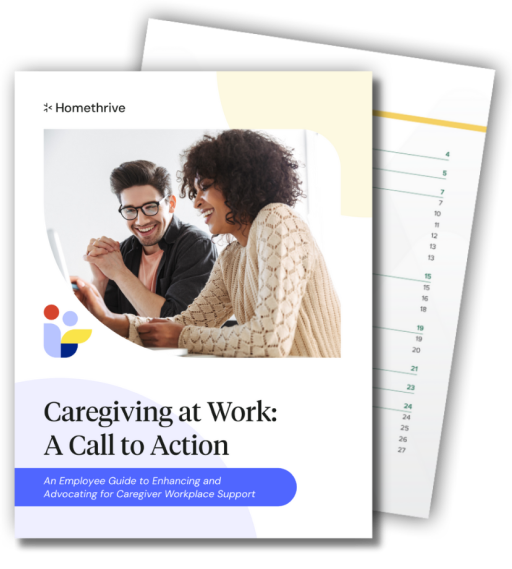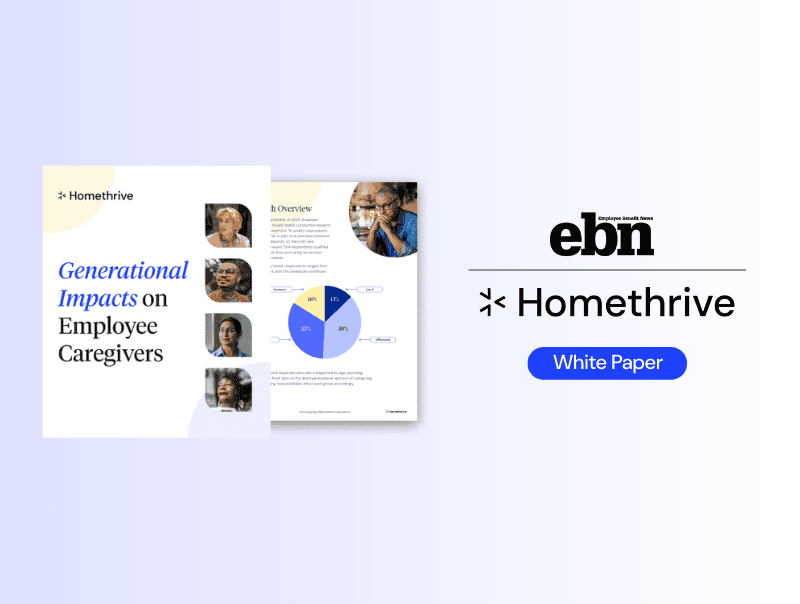At Homethrive, we often highlight our Care Guides as the heart of our caregiving benefit. These credentialed social workers are not only the driving force behind our resources, but can also directly assist with caregiving challenges by doing research, making calls, and providing emotional support for our members.
When you work with a Care Guide, you will receive highly individualized assistance with your caregiving questions and needs. Roles like care managers, geriatric managers, and lifecare managers are similar to Homethrive Care Guides, in that they are expert liaisons trained to support caregivers and provide solutions to caregiving challenges.
Care Guide FAQs
Q: How much does it cost to connect with a Care Guide?
A: If you are receiving Homethrive as a benefit through your organization or health plan, in many cases, there is no cost to connect with a Care Guide. Check with your organization to confirm that Care Guide support is included in your benefit.
Q: How can I contact a Care Guide?
A: Simply sign in to your Homethrive account using the code provided by your organization. Under “Expert Help,” select “Inbox” to send a message to a Care Guide, or “Schedule a Call” to connect directly to someone who can help.
Q: What credentials do the Care Guides have?
A: Homethrive Care Guides are all experienced social workers with experience in areas like Alzheimer’s and dementia, Medicare and Medicaid, backup care, healthy aging, and end of life and loss. They are trained to assist caregivers in situations ranging from caring for an aging adult to a young child with disabilities.
Q: What days and times are Care Guides available?
A: We know caregiving doesn’t just happen 9-5. Care Guides are available for an in-person call or text Monday-Friday between 8 AM and 4:30 PM EST, or you can send them a message at any time using the “Inbox” feature.
Q: Can I reach back out to my Care Guide with a different request after my initial request was completed?
A: Yes! Your Care Guide is always available, even after your first request is fulfilled. You will keep the same Care Guide for all needs that arise.
Care Guide Case Examples
We recently sat down with our Care Guides to discuss some of their recent cases, and what they did in order to reduce stress, save time, and get results.
A New Bed to Lay His Head
Care Guide Amanda M. got a call from Micheal, a father of an adult child that needed more medical support. Specifically, he was looking for a better long-term care community for his son, since the one he was currently staying in did not have the best standard for care. In addition, he wanted to pinpoint counseling resources that could help improve his son’s mental health.
“We were able to find multiple care communities that had beds available,” said Amanda M. Considering the rarity of available beds in these facilities, Micheal was grateful to have more than one choice.
When it came to his son’s mental health counseling, Amanda M. began looking for an accessible virtual option.
“We were able to get someone in his insurance network and that provided virtual sessions for him,” said Amanda M. “I believe that took a lot of stress and concern off of Micheal because he knew that his son’s well-being and mental health were both being addressed.”
Wheelchair Negotiations
When Care Guide Monique started working with Carl, she learned that he had been struggling to get a wheelchair for years.
He had made numerous attempts to get an order from his primary care physician to pass to his insurance provider, but each attempt resulted in a dead end, and ultimately no coverage for the wheelchair he needed but could not afford.
“I was able to contact the doctor’s office and get them to send a referral directly to a provider that could cover the cost of a wheelchair for him,” said Monique.
Despite this, when Monique checked in with Carl a few weeks later, he still hadn’t received his wheelchair. After some investigation, Monique discovered that the local doctor’s office was refusing to work with Carl’s insurance company.
“I was able to advocate for him pretty strongly,” said Monique. “They did end up sending the referral to another company and he was finally able to get a wheelchair after years of not having one.”
Finding Caregiving Connections
Debra’s adult daughter started to experience mental health difficulties during the pandemic. By the time Debra approached Care Guide Amanda T., the family had already been actively working with mental health providers for several years, and her daughter had been successfully approved for disability insurance and was living on her own.
Now that Debra’s daughter was in a good place, she wanted to learn more about her daughter’s mental health condition by speaking to others with similar experiences. Although she knew that there must be support groups available, she wasn’t sure where to start, and didn’t have much time to research them besides.
“We were able to find several groups that were aligned with what Debra requested,” said Amanda T. “I checked in with her a week after I provided her with support group options, and was so pleased to hear that she had already attended several online meetings.”
Debra was comforted by being able to openly speak about her and her family’s experience with people who understood where she was coming from, all while offering support without judgment.
Seven Hours in the Medicaid Spiral
Tom was trying to coordinate Medicaid waivers for his sister, who was looking for an agency that could provide in-home care for her. Tom’s sister didn’t want to make the move to a senior care home, but her chronic health condition meant that she still needed consistent medical care. Luckily, Care Guide Stefani had experience in this area, and was ready to navigate for her.
Medicaid is a complicated system, so the time investment for finding the right agency was substantial–almost 7 hours when all was said and done. By the time Stefani was finished, Tom’s sister had successfully transferred to an agency in her network. By then, Stefani and Tom were texting almost every day to check in with each other.
“I followed up with him and he said that his sister is really happy,” said Stefani. “She has the care she needs at the new agency and she’s really happy with the caregivers. They have constant care. She’s just very happy.”
All in all, Care Guides work tirelessly to unburden caregivers that may not have time in the day to spend on the phone with care providers, agencies, and doctors. They invest hours researching each individual case in order to find the best care for their members’ loved ones.
“My job is to make my role not necessary in a member’s life,” said Stefani. “But I know that we have that rapport now, and that he can always come to me if he needs anything else in the future.”
Find out more ways to support your employee caregivers by learning about the benefits that can help. To receive caregiving benefit insights delivered straight to your inbox, sign up for our weekly newsletter.







